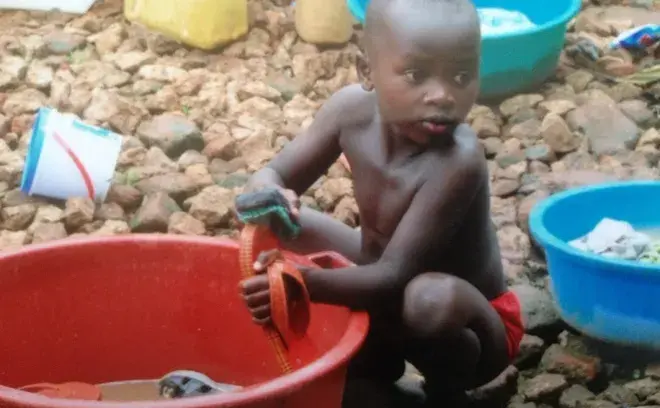Participants
The Post-2015 Consensus project brings together 60 teams of economists with NGOs, international agencies and businesses to identify the targets with the greatest benefit-to-cost ratio for the UN's post-2015 development goals. Scroll down to see who's involved, by topic.
Air Pollution
Assessment paper
Bjorn Larsen is an economist and consultant to international and bilateral development agencies, consulting firms, and research institutions with 25 years of professional experience from over 50 developing countries. His expertise includes quantitative health risk assessment, health risk valuation, benefit assessment of environmental protection, cost-benefit and cost effectiveness analysis of environmental health intervention. His primary fields of work are outdoor air pollution, household air pollution from solid fuels, household water supply, sanitation and hygiene, and poverty-environmental health linkages.
Perspective papers
Marc Jeuland, Assistant Professor, Duke University
Mike Holland, Independent Consultant
Viewpoint paper
Katharina M. K. Stepping, Researcher, German Development Institute
Clean Air Asia, established in 2001 as the premier air quality network for Asia by the Asian Development Bank, World Bank, and USAID.

Biodiversity
Assessment paper
Anil Markandya is a resource economist who has worked in this field for over thirty years and is acknowledged as one of the leading authorities. He holds a PhD from the London School of Economics. He has held academic positions at the universities of Princeton, Berkeley and Harvard in the US and at University College London and Bath University in the UK. He was a lead author for Chapters of the 3rd and 4th IPCC Assessment Reports on Climate Change. He was appointed the Executive Director for the Basque Centre for Climate Change in April 2008. In that same year, he was nominated by Cambridge University as one of the 50 most influential thinkers on sustainability in the world.
Perspective papers
Alistair McVittie, Environmental Economist, Scotland’s Rural College
Luke Brander, Environmental Economist, Associate Researcher, VU University Amsterdam; Adjunct Assistant Professor, Hong Kong University of Science and Technology
Viewpoint papers
Dilys Roe, Team Leader, IIED
Simon Milledge, Forest Team Leader, IIED

Climate Change
Assessment papers
Isabel Galiana is lecturer at the Department of Economics, McGill University, Canada and a guest researcher at the Center for Climate Science and Policy Research at the Linkoping University, Sweden. Isabel was a former advisor to Minister for Sustainable Development, the Environment and Parks in the province of Quebec. Much of her research focuses on the links between environmental policy and innovation. She is particularly interested in how policy can shape the development and implementation of low-carbon technologies. She holds a PhD in economics from McGill University.
Perspective papers
Carolyn Fischer, Senior Fellow and Associate Director of Center for Climate and Electricity Policy, Resources for the Future
Robert Mendelsohn, Edwin Weyerhaeuser Davis Professor of Forest Policy and of Economics, Yale University
Viewpoint papers
ForumCC, Association of civil society organizations committed to work on climate change in their own programs as well as through advocacy.
Lucy Scott , Research Officer , Overseas Development Institute

Conflict and Violence
Assessment paper
Anke Hoeffler is a research officer at Centre for the Study of African Economies at the University of Oxford. She holds a D.Phil. in economics from the University of Oxford and has published more than 35 scholarly articles and book chapters in the area of conflict and development. Her research interests are mainly in the areas of economic growth, the economics of conflict and political economy.
James Fearon is currently Theodore and Frances Geballe Professor in the School of Humanities and Sciences and Professor of Political Science at Stanford University. He is also a Senior Fellow at Stanford's Freeman-Spogli Institute for International Studies, a member of the National Academy of Sciences, and a program member of the Canadian Institute for Advanced Research. His research focuses mainly on explanations for political violence – interstate, civil, and ethnic conflict – although he has worked on a range of conflict-related topics, such as the impact of post-conflict reconstruction aid.
Perspective papers
S. Brock Blomberg, Professor of Economics, Claremont McKenna College
Rodrigo R. Soares, Professor of Economics, Sao Paulo School of Economics
Viewpoint papers
Abigail E. Ruane, Peace Women Program Manager, Women's International League for Peace and Freedom
Ciara Aucoin, former Program Associate, Conflict Prevention and Peace Forum, Social Science Research Council
Olivia Russell, Editorial Coordinator, Stability: International Journal of Security and Development
Charles Ransford, Director of Science and Policy, Cure Violence

Data for Development
Assessment paper
Morten Jerven is an associate professor at the School of International Studies at Simon Fraser University, Vancouver Canada. He has published widely on African economic development, and particularly on patterns of economic growth and on economic development statistics. His recent book is based on research in Ghana, Nigeria, Uganda, Kenya, Tanzania, Malawi, Zambia and Botswana. His recent book Poor Numbers, questions the effectiveness of African GDP statistics (and was mentioned by Bill Gates as one of the best books he has read in 2013). He holds a PhD from the London School of Economics.
Perspective papers
Gabriel Demombynes, Senior Economist, World Bank
Justin Sandefur, Research Fellow, Center for Global Development
Deborah Johnston, Reader in Development Economics, School of Oriental and African Studies, University of London
Viewpoint papers
Serge Kapto, Policy Specialist, UNDP
Claire Melamed, Head of the Growth, Poverty and Inequality Program , Overseas Development Institute

Education
Assessment paper
George Psacharopoulos is a member of the CESIfo research group. He is known world-wide for his major contributions to the development of the economics of education. After receiving his M.A. and Ph.D. in economics from the University of Chicago, Psacharopoulos taught at the Universities of Hawaii, Chicago, Illinois, Athens and Georgetown. He has served at the World Bank for seventeen years as Senior Advisor to the Vice President, Human Capital and Operations Policy, Chief of the Human Resources Technical Division, and Manager of the Education Research Division. A 2003 paper, co-authored with Harry Patrinos of the World Bank, was cited in the High Level Panel Report identifying the returns on investment to education.
Perspective papers
Paul Glewwe, Professor of Economics , Department of Applied Economics, University of Minnesota
Caroline Krafft, PhD Candidate, Department of Applied Economics, University of Minnesota
Peter Orazem, Professor of Economics, Department of Economics, Iowa State University
Viewpoint papers
Education International, the world’s largest federation of unions, representing thirty million education employees in about four hundred organisations in one hundred and seventy countries and territories, across the globe.
Save the Children is an international non-governmental organization that promotes children's rights, provides relief and helps support children in developing countries.
UNICEF provides long-term humanitarian and developmental assistance to children and mothers in developing countries.
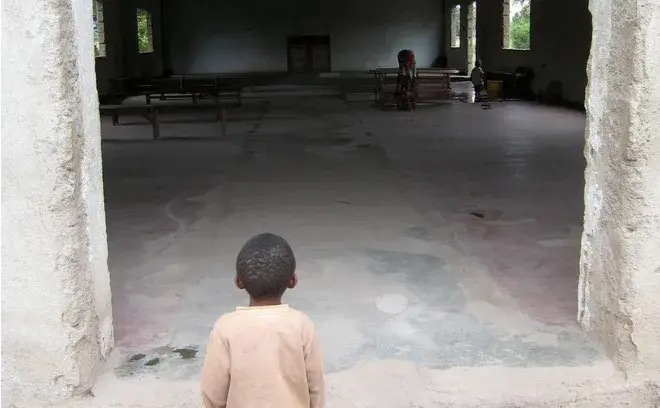
Energy
Assessment paper
Isabel Galiana is lecturer at the Department of Economics, McGill University, Canada and a guest researcher at the Center for Climate Science and Policy Research at the Linkoping University, Sweden. Isabel was a former advisor to Minister for Sustainable Development, the Environment and Parks in the province of Quebec. Much of her research focuses on the links between environmental policy and innovation. She is particularly interested in how policy can shape the development and implementation of low-carbon technologies. She holds a PhD in economics from McGill University.
Amy Sopinka - Since 1996 Amy has worked in the energy sector as an advisor, market analyst and consultant, focusing more recently on the regulatory and policy aspects of energy systems. In addition, she has directed quantitative risk management studies for natural gas producers, utilities, industrial end-users, and municipal electric utilities. Amy has created price forecasts for energy markets in Ontario and Alberta as well as the Pacific Northwest day-ahead electricity markets. She completed a PhD at the University of Victoria where her dissertation work focused on the impacts of differing regulatory structures on the energy systems of Alberta and British Columbia. She received an MA from McGill University with a specialization in econometrics and a BA from Queen’s University.
Perspective papers
Adele C. Morris, Fellow and Policy Director for the Climate and Energy Economics Project, Brookings Institution
Todd Moss, Chief Operating Officer and Senior Fellow, Center for Global Development
Madeleine Gleave, Research Assistant, Center for Global Development
Viewpoint papers
Innovation: Africa, a non-profit organization that brings Israeli innovation to African villages. Founded in 2008, in six years Innovation Africa has provided light, clean water, food and proper medical care to more than 675,000 people in Ethiopia, Tanzania, Malawi, Uganda, South Africa and the Democratic Republic of Congo.
Lungile Mashele, Sector Specialist – Energy, Development Bank of South Africa

Food Security and Nutrition
Assessment paper
Mark Rosegrant is Director, Environment and Production Technology Division, International Food Policy Research Institute (IFPRI). With a Ph.D. in Public Policy from the University of Michigan, he has extensive experience in research and policy analysis in agriculture and economic development, with an emphasis on water resources and other critical natural resource and agricultural policy issues as they impact food security, rural livelihoods and environmental sustainability. He currently directs research on climate change, water resources, sustainable land management, genetic resources and biotechnology, and agriculture and energy. He is the author or editor of 12 books and over 100 refereed papers in agricultural economics, water resources and food policy analysis. Rosegrant has won numerous awards, and is a Fellow of the American Association for the Advancement of Science; and a Fellow of the Agricultural and Applied Economics Association.
Eduardo Magalhaes, Consultant, EPTD, IFPRI
Rowena A. Valmonte-Santos, Senior Research Analyst, EPTD, IFPRI
Daniel Mason-D’Croz, Research Analyst, EPTD, IFPRI
Perspective papers
Christopher B. Barrett, Professor, Cornell University
Susan Horton, CIGI Chair in Global Health Economics, University of Waterloo, Canada
John Hoddinott, H.E. Babcock Professor of Food & Nutrition Economics and Policy, Cornell University
Viewpoint papers
Ladd, Senior Technical Director, Nutrition, ACDI/VOCA
Charlotte Block, Technical Director, Nutrition, ACDI/VOCA
Daisy N. Owomugasho, Country Director, The Hunger Project Uganda
Boubaker Ben Belelhassen, Director, Trade and Markets Division, Economic and Social Development Department, FAO
Rebecca Spohrer, International Nutrition Program Manager, Global Alliance for Improved Nutrition (GAIN)
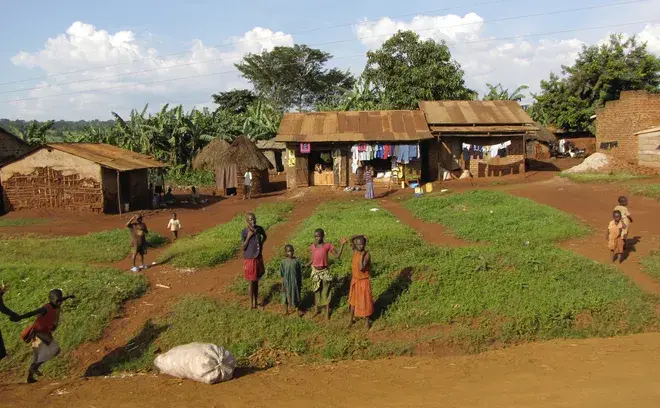
Gender Equality
Assessment paper
Irma Clots-Figueras is currently an associate professor at the Department of Economics in Universidad Carlos III de Madrid, Spain where she has been affiliated since 2006. She is also a Research Fellow at the Institute for the Study of Labor (IZA), Bonn and Member of Insights on Immigration and Development (INSIDE), Barcelona. Holding a PhD in Economics from the London School of Economics, she now researches and teaches within the areas of development economics, political economy, labor economics and public economics.
Perspective papers
Joyce P. Jacobsen, Professor of Economics, Wesleyan University
Elissa Braunstein, Associate Professor, Department of Economics, Colorado State University
Viewpoint papers
Lindsey Jones, Director, Gender Mainstreaming and Women’s Empowerment, ACDI/VOCA
Anja Taarup Nordlund, Sr. Gender Consultant, Nordic Consulting Group Sweden
Almas Jiwani, President, UN Women National Committee Canada
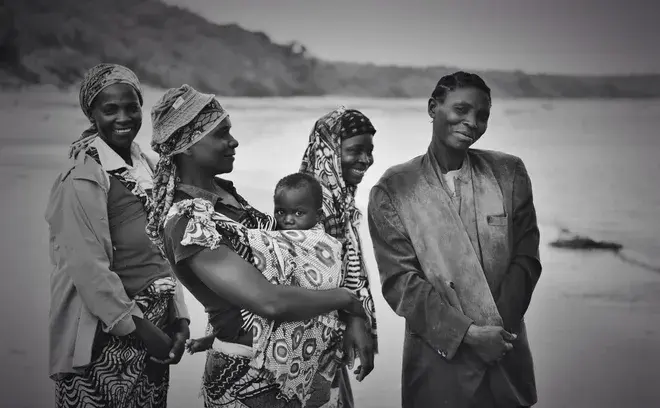
Governance and Institutions
Assessment paper
Mary E. Hilderbrand has just joined the George H. W. Bush School of Government and Public Service at Texas A&M University as Distinguished Practitioner in Residence and Senior Lecturer. She has recently worked as part of an initiative to develop the School of Government and Public Policy-Indonesia, where she served as Associate Professor and Area Head of Politics, Governance and Policy Process. Until 2012, she was Fellow in International Development at the John F. Kennedy School of Government at Harvard University, and prior to that, was at Harvard Institute for International Development (HIID). She has an ongoing research affiliation with the Center for International Development at Harvard. Her research areas include the politics of economic reform, institutional capacity, technical cooperation, reform of the state, and the role of politics and governance in development. She has experience managing development projects and has done consulting on capacity development and public sector reform for the United Nations Development Programme and the Inter-American Development Bank, among other organizations. She holds a PhD in political science from Harvard University.
Perspective papers
Aart Kraay, Economist, Development Research Group , World Bank
Matt Andrews, Associate Professor of Public Policy, Harvard Kennedy School
Viewpoint papers
Martin Edwards, Director, Center for UN and Global Governance Studies, Seton Hall University
Nicola Crosta, Executive Vice President, Epic Foundation

Health
Assessment paper
Prahbat Jha is Professor of Disease Control at the University of Toronto. He leads the ongoing Million Death Study in India, one of the world's largest studies of avoidable mortality. Previously, he worked at the World Bank and led the work on health and poverty at the Commission on Macroeconomics and Health. His research on global tobacco epidemiology and economics has formed much of the evidence for the first-ever global treaty on tobacco control. His current research is focused on the causes of premature death in developing countries.
Ryan Hum is a doctoral candidate at the Centre for Global Engineering at the University of Toronto. He has an eclectic background spanning engineering, biology and design. Prior to his graduate studies, Ryan worked in policy development for the Government of Canada in biotechnology, health and natural resources. His research interests relate to applying engineering methods to analyze changes in global health. He is also a Special Lecturer in engineering and public policy at the University of Toronto.
Cindy Gauvreau is a health systems researcher with specialization in economic evaluation at the Centre for Global Health Research, St. Michael’s Hospital, Toronto. Her areas of research include economic development, childhood infectious diseases, and tobacco control. She holds a PhD from the University of Toronto.
Keely Jordan is a health policy researcher with a specialization in the Global Health 2035: A World Converging within a Generation report. Her areas of research include global reproductive health, economic development, and implementation science. She hold a Masters in Global Health from the University of California, San Francisco.
Perspective papers
Dara Lee Luca, School of Public Health, Harvard University
Elizabeth Mitgang, School of Public Health, Harvard University
Alyssa Shiraishi Lubet, School of Public Health, Harvard University
David E. Bloom, School of Public Health, Harvard University
Johanne Helene Iversen, University of Bergen
Kristine Husøy Onarheim, University of Bergen
Klaus Prettner, Vienna University of Technology
Günther Fink, Associate Professor of International Health Economics, Harvard School of Public Health
Anna Vassall, Senior Lecturer in Health Economics, London School of Hygiene and Tropical Medicine
Neha Raykar, Lead Economist , Public Health Foundation of India
Ramanan Laxminarayan , Vice-President for Research and Policy, Public Health Foundation of India;
Pascal Geldsetzer, Research Fellow, Harvard School of Public Health
Salal Humair, Associate Professor, Harvard School of Public Health; Lahore University of Management Sciences
Till Bärnighausen, Assistant Professor of Global Health, Harvard School of Public Health
Rachel Nugent, Clinical Associate Professor in the Department of Global Health, University of Washington
Viewpoint papers
Patrick Gerland, Chief, United National Population Division, DESA
Danzhen You, Statistics and Monitoring Specialist, UNICEF
Maria Wang, Country Support Manager, MDR-TB, Clinton Health Access Initiative
Regina Osih, TB/HIV Advisor, Clinton Health Access Initiative
Priya Madina, Director, Government Affairs, Global Issues, GlaxoSmithKline
Jon Pender, Vice President, Government Affairs, GlaxoSmithKline
Simon Wright, Head of Child Survival, Save the Children
Eileen Natuzzi, Medical Education Coordinator, Solomon Island Living Memorial Project, San Diego State University, School of Public Health
Peter Ghys, Director a.i., Strategic Information and Evaluation, Joint United Nations Programme on AIDS (UNAIDS)
José-Antonio Izazola-Licea, Division Chief, Evaluation and Economics, Joint United Nations Programme on AIDS (UNAIDS)
Douglas Webb, Cluster Leader, Mainstreaming, Gender and MDGs. HIV, Health and Development Group UNDP’s Bureau for Development Policy
Ilona Kickbusch, Director of the Global Health Program, Graduate Institute of International and Development Studies in Geneva
Ann Starrs, President, Guttmacher Institute
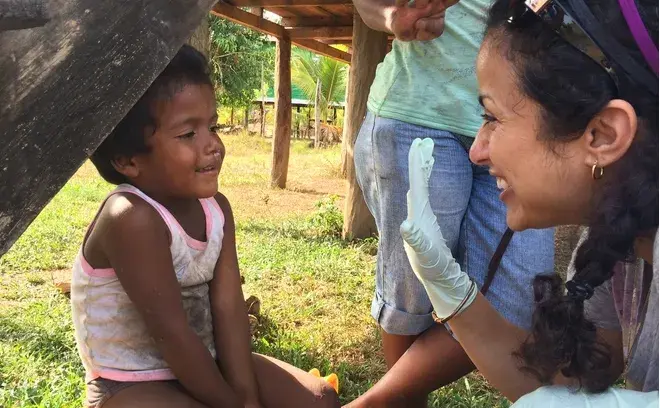
Illicit Financial Flows
Assessment paper
Alex Cobham is a research fellow at the Center for Global Development in Europe. His research focuses on illicit financial flows, effective taxation for development, and inequality. He joined CGD in Europe in March 2013 from Save the Children UK, where he was head of research. He was previously at Christian Aid, and before that he was a researcher at Queen Elizabeth House (the Department of International Development at Oxford University), and a junior economics fellow at St Anne’s College, Oxford University. Cobham is the author or co-author of a range of academic papers, policy reports, and book chapters, including some of the first estimates of the costs of illicit financial flows for developing countries. He was a member of the advisory group to the global consultation on inequalities within the post-2015 development framework.
Perspective papers
Tom Cardamone, Managing Director, Global Financial Integrity
Dev Kar, Chief Economist, Global Financial Integrity
Peter Reuter, Professor in School of Public Policy and Department of Criminology, University of Maryland
Viewpoint papers
Angela Me, Chief of Statistics and Surveys Section, UNODC
Semkae Kilonzo, Coordinator, Policy Forum

Infrastructure
Assessment paper
Emmanuelle Auriol studied Economics at the University of Toulouse where she received her PhD in 1992. She is a professor at Toulouse School of Economics and fellow of the IUF, EEA, CEPR, EUDN, CESifo, and a member of the EEA Council and of the executive committee of EUDN. Her research interests include industrial organization, regulation, labor economy, collective decision making and development economics. Auriol studies government conduct and performance with a special focus on developing economies. She relies both on theory and empirical studies to derive policy recommendations on industrial organization issues such as privatization, regulation or markets design. Throughout the years she has received several grants and awards for her research, which has been published in top international journals.
Alexia Gonzalez Fanfalone is currently a doctoral candidate at the Toulouse School of Economics (TSE). Her main areas of expertise are ICT infrastructure and regulatory issues in the telecommunications sector. Ms. Gonzalez Fanfalone holds a master’s degree in Economics from TSE. Her recent publications include: "OECD Review of Telecommunication Policy and Regulation in Colombia" (2014), "International Traffic Termination" (OECD, 2014), “Mobile Handset Acquisition Models” (OECD, 2013), and contributions to the chapter on Internet Infrastructure of the "OECD Communications Outlook 2013."
Perspective paper
Pantelis Koutroumpis, Research Fellow, Imperial College London
Viewpoint papers
Alliance for Affordable Internet, is a coalition of private sector, public sector, and civil society organizations who have come together to advance the shared aim of affordable access to both mobile and fixed-line Internet in developing countries
Charles Cadwell, Director, Urban Institute Center on International Development and Governance

Population and Demography
Assessment paper
Hans-Peter Kohler is currently the Frederick J. Warren Professor of Demography in the Department of Sociology and a Research Associate in the Population Studies Center at the University of Pennsylvania. Kohler is the recipient of the 2005 the Clifford C. Clogg Award for Early Career Achievement by the Population Association of America, has been a recent fellow at the Norwegian Academy of Science, and his research has received extensive funding through the National Institutes of Health (USA) and other institutions. Kohler has widely published on topics related to fertility, health, social and sexual networks, HIV/AIDS, biodemography and well-being in leading scientific journals, and his work has had substantial influence on policy and media discussions related to demographic change.
Jere Behrman (Ph.D. Economics, MIT, 1966) is the WR Kenan, Jr. Professor of Economics and Sociology and Population Studies Center Research Associate at the University of Pennsylvania. His research is in empirical micro economics, economic development, early childhood development, labor economics, human resources (education, training, health, nutrition), economic demography, household behaviors, life-cycle and intergenerational relations and policy evaluation. He has published over 370 professional articles (primarily in leading general and field economic journals, also in leading demographic, sociology, nutritional and biomedical journals) and 34 books. He has been a research consultant with numerous international organizations, involved in professional research or lecturing in over 40 countries, principal investigator on over 75 research projects and received various honors for his research, including being selected a Fellow of the Econometric Society, a 40th Anniversary Fulbright Fellow, the 2008 biennial Carlos Diaz-Alejandro Prize for outstanding research contributions to Latin America, a 2011 Doctor Honoris Causa from the University de Chile, and a member of the U.S. National Institutes of Child Health and Development (NICHD) Advisory Council. He currently is P.I. on Bill and Melinda Gates Foundation and Grand Challenges Canada grants and an investigator on two NICHD projects studying early childhood development. He has participated in various roles since 2004 in the Copenhagen Consensus project, ranging from author of challenge papers to a member of the San Jose panel.
Perspective papers
Oded Galor, Herbert H. Goldberger Professor of Economics, Department of Economics, Brown University
Gregory Casey, Ph.D. candidate, Department of Economics, Brown University
David Canning, Richard Saltonstall Professor of Population Sciences and Professor of Economics and International Health, Harvard School of Public Health
Viewpoint paper
Michael Herrmann, Senior Adviser on Population and Economics, United Nations Population Fund (UNFPA); Member of the United Nations Task Team on the Post-2015 Development Agenda and Sustainable Development Goals

Poverty
Assessment paper
John Gibson is Professor in the Department of Economics, University of Waikato and a Senior Research Associate of Motu Economic and Public Policy Research. He taught previously at the University of Canterbury, and the Economics Department and Center for Development Economics at Williams College. Since receiving his Ph.D. from Stanford University he has undertaken extensive research on the measurement and reduction of poverty in numerous countries including Cambodia, China, Fiji, India, Papua New Guinea, Russia, Samoa, Solomon Islands, Thailand, Tonga, Vanuatu and Vietnam. His recent publications have appeared in the Economic Journal, Review of Economics and Statistics and Journal of Development Economics.
Perspective papers
Gaurav Datt, Associate Professor of Economics, Monash University
Valerie Kozel, Associate Adjunct Professor, La Follette School of Public Affairs, University of Wisconsin-Madison
Viewpoint paper
Deborah S. Rogers, President, Initiative for Equality and Stanford University
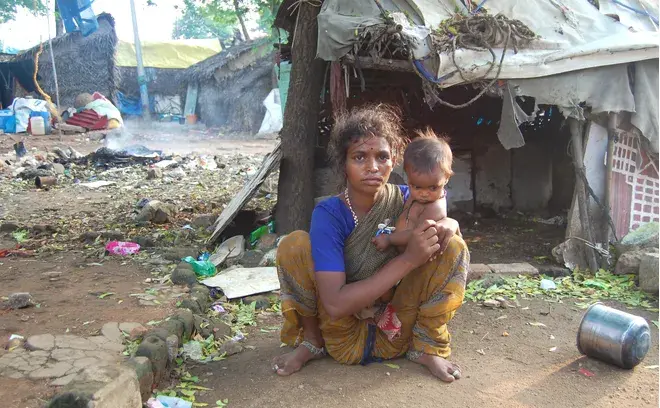
Science and Technology
Assessment papers
Keith E. Maskus is Professor of Economics and former Associate Dean for Social Sciences at the University of Colorado, Boulder, USA. He has been a Lead Economist in the Development Research Group at the World Bank. He is also a Research Fellow at the Peterson Institute for International Economics, a Fellow at the Kiel Institute for World Economics, and an Adjunct Professor at the University of Adelaide. He serves also as a consultant for the World Bank and the World Intellectual Property Organization and recently chaired a panel of the National Research Council on intellectual property management in standards-setting organizations.
Perspective papers
Kamal Saggi, Professor of Economics, Vanderbilt University
Pamela J. Smith, Associate Professor of Applied Economics, University of Minnesota
Viewpoint papers
Padmashree Gehl Sampath, Chief, Science and Technology Section, UNCTAD
Manuel F. Montes, Senior Advisor on Finance and Development, The South Centre.

Trade
Assessment participant
Kym Anderson is the George Gollin Professor of Economics at the University of Adelaide, where he has been affiliated since 1984. Previously he was a Research Fellow in Economics at ANU's Research School of Pacific and Asian Studies (1977-83), following doctoral studies at the University of Chicago and Stanford University (1974-77). In 2012 he rejoined the ANU part-time as a Professor of Economics in the Arndt-Corden Department of Economics of ANU’s Crawford School of Public Policy. He has served on several dispute settlement and arbitration panels at the World Trade Organization since 1996 (the first economist to do so.)
Perspective papers
Bernard Hoekman, Robert Schuman Chair and Research Area Director of Global Economics, European University Institute
Patrick Low, Vice President for Research and Senior Fellow, Fung Global Institute, Hong Kong
Viewpoint papers
Vinaye Ancharaz, Senior Development Economist, International Centre for Trade and Sustainable Development
Santiago Fernández de Córdoba, Economist, UNCTAD; Non-Resident Fellow, Navarra Center for International Development, University of Navarra
David Vanzetti, Fellow, Australia National University
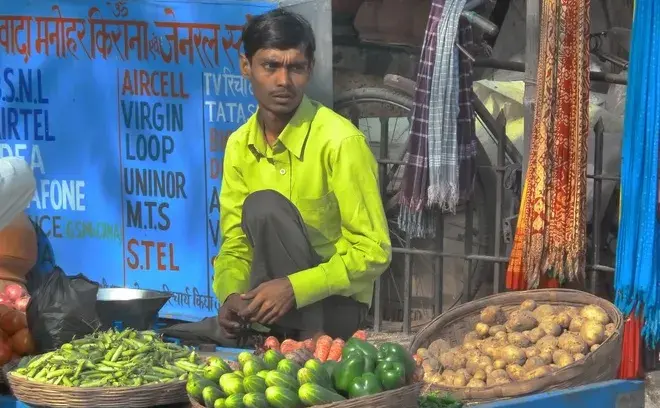
Water and Sanitation
Assessment paper
Guy Hutton is Senior Economist at the World Bank Water and Sanitation Program (WSP). He has previously held positions at University of London and University of Basel, Switzerland. Since 2007 he has lead WSP’s “economics of sanitation initiative”, a research-to-policy initiative which raises the profile of sanitation and the quality of decision making in the sector. From 2011-13 he coordinated (for the WHO/UNICEF Joint Monitoring Program) the process to propose global WASH targets and indicators in the Post-2015 period.
Perspective paper
Dale Whittington, Professor of Economic, University of North Carolina at Chapel Hill and Manchester Business School.
Viewpoint papers
Mary Ostrowski, Director, Chlorine Issues, American Chemistry Council
Allan Jones, Consultant, International Chemical Regulation
